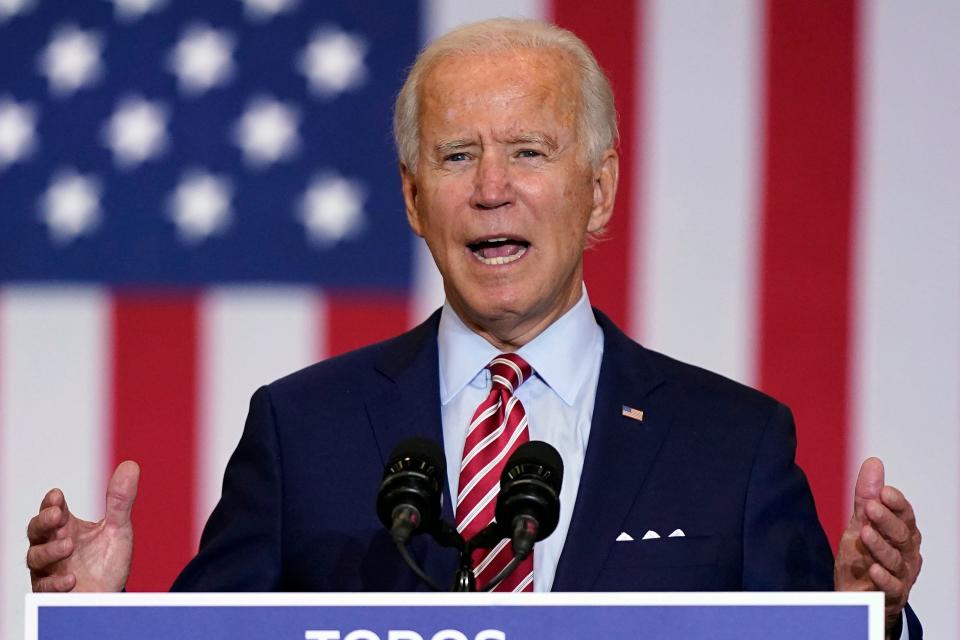No president should have unilateral power to use nuclear weapons: Sen. Warren and Sec. Perry
For two weeks after he incited an insurrection against the Congress and the Constitution he swore an oath to defend, departing President Donald Trump retained full authority to use the most deadly weapons ever created. As disturbing as it might be, this authority is a central feature of our nation’s nuclear decision-making structure — and it is long past time for reform. There is no question that we must place firm limits on presidential nuclear powers, first by enacting a formal policy not to use nuclear weapons first and then by making any decision to use nuclear weapons subject to the approval of Congress.
House Speaker Nancy Pelosi’s plea to the chairman of the Joint Chiefs of Staff on Jan. 8 to somehow find “available precautions” to prevent Trump from using his sole authority (the president does not need approval or concurrence from anyone else before ordering a nuclear launch, and the military is required to follow that order) to launch was remarkable and shocking, but it was not a first. Former Secretary of Defense James Schlesinger took steps in the last days of Richard Nixon’s presidency to prevent him from abusing his nuclear authority when Nixon was drinking heavily and facing impeachment.
Ban 'first use' of nuclear weapons
No, Trump was not the first president to raise these concerns, and he is unlikely to be the last. We must change the underlying policy that gives presidents this godlike power. We must end — for all presidents to come — the policy that gives them sole authority to launch even if we have not been attacked.
This is an existential issue for the United States that deserves the highest attention from the new administration and Congress. Here is what we must do:
First, we must prohibit the “first use” of nuclear weapons — meaning we would declare that we would only use nuclear weapons in response to a nuclear attack. We would all rest easier today if we knew that Trump could only legally order the use of nuclear weapons in retaliation to a confirmed nuclear attack. There would be no chance, say, of him using his last days in office to end his “maximum pressure” campaign against Iran by dropping a few atomic bombs that could kill millions.

President Joe Biden has said that he supports a declaration that the sole purpose of nuclear weapons is to deter their use by others. This is a sensible position, and such a policy could also be designed to prohibit first use, including preemptive nuclear attacks and launches on warning of attack. These scenarios dangerously increase the risk of starting nuclear war by mistake.
Some argue that prohibiting first use would undermine deterrence. Not so. Deterrence rests on our unquestioned ability to retaliate to a nuclear attack. The United States possesses the capability to retaliate even after being hit because of our nuclear-armed submarines hidden under the oceans. Any nuclear strike against the United States would be suicide for the attacker, as a massive U.S. retaliation would surely follow.
Cleaning up after Trump: The Trumpocalypse is over, now let's clean up the mess
In addition to preventing an unhinged president from going nuclear, prohibiting first use would also help us avoid accidentally blundering into nuclear war. Early warning systems are vulnerable to false alarms, and cyberthreats to our nuclear systems are increasing. A quick decision to use nuclear weapons only increases that chance that nukes could be launched in response to a false alarm — essentially starting a nuclear war by mistake. We should do everything in our power to avoid such a nightmare.
One of us has introduced a bill in the Senate to enact a "No First Use" policy. A companion bill in the House is led by Armed Services Committee Chairman Adam Smith. Congress should pass this bill without delay.
No launch without Congress involved
Policymakers should also go a step further and formally require the executive and legislative branches to jointly share a decision to launch nuclear weapons, as proposed in a bill introduced by Massachusetts Sen. Ed Markey and California Rep. Ted Lieu. The Constitution gives Congress the authority to declare war, not the president. If the first use of nuclear weapons is not an act of war, we do not know what is.
To-do list: What does President Biden need to get done in his first 100 days?
Such policies would provide clear directives for the military to follow: A launch could be ordered only if the nation had already been attacked with nuclear weapons, a highly unlikely scenario given the known ability for the United States to retaliate, or if Congress had approved the decision, providing a constitutional check to executive power. Both would be infinitely less risky — to our nation and to the world — than our current doctrine.
President Trump’s last terrifying weeks in office have been a wake-up call. Never again should we allow a dangerous president to have unilateral control over nuclear launch. By agreeing to limit his own nuclear authority, President Biden can make the nation and the world safer for generations to come.
Elizabeth Warren (@SenWarren) is a senator from Massachusetts. William J. Perry (@SecDef19) served as secretary of Defense under President Bill Clinton.
You can read diverse opinions from our Board of Contributors and other writers on the Opinion front page, on Twitter @usatodayopinion and in our daily Opinion newsletter. To respond to a column, submit a comment to letters@usatoday.com.
This article originally appeared on USA TODAY: After Trump, end unilateral nuclear launch power for all presidents

